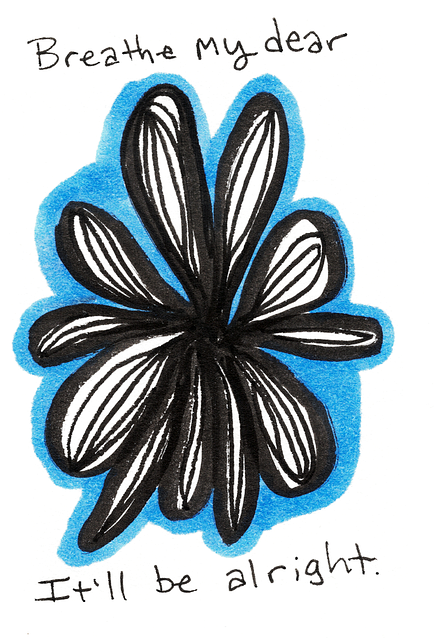Colorado Springs prioritizes culturally sensitive mental healthcare, utilizing tailored services like adapted Exposure and Response Prevention (ERP) Therapy to address unique psychological and cultural challenges. By incorporating patients' beliefs, values, and community norms, ERP becomes more accessible and effective across diverse backgrounds. Mental health professionals emphasize emotional regulation, empathy, and equitable policies to foster trust and ensure everyone receives respectful, personalized treatment. This approach, combined with tools like Stress Management Workshops and journaling exercises, strengthens the therapeutic bond and improves outcomes in diverse communities.
In the diverse landscape of mental healthcare, cultural sensitivity is paramount. This article explores these nuances through a Colorado Springs perspective, delving into the integration of Exposure and Response Prevention Therapy (ERP) across cultures. We examine how ERP, a highly effective treatment approach, must adapt to diverse communities, fostering inclusive practices for better outcomes. By understanding cultural contexts, mental health professionals in Colorado Springs can provide more personalized, culturally responsive care.
- Understanding Cultural Sensitivity in Mental Healthcare: A Colorado Springs Perspective
- The Role of Exposure and Response Prevention Therapy (ERP) Across Cultures
- Building Inclusive Practices for Effective Mental Health Treatment in Diverse Communities
Understanding Cultural Sensitivity in Mental Healthcare: A Colorado Springs Perspective

In Colorado Springs, cultural sensitivity in mental healthcare is more than a buzzword; it’s a critical approach to providing effective treatment. The city’s diverse population requires tailored services that address unique psychological and cultural challenges. For instance, Exposure and Response Prevention Therapy (ERP), a widely used technique for treating anxiety disorders, must be adapted to resonate with various cultural backgrounds. This involves understanding not just the patient’s fears but also their beliefs, values, and community norms.
Mental healthcare professionals in Colorado Springs are increasingly recognizing the importance of emotional regulation and empathy building strategies that acknowledge cultural differences. Incorporating these practices into treatment plans not only enhances therapy outcomes but also fosters trust between patients and providers. Moreover, advocacy for equitable mental health policies is essential to ensuring access to culturally competent care. The city’s efforts in this direction reflect a commitment to addressing the unique needs of its diverse population through innovative practices and policy analysis.
The Role of Exposure and Response Prevention Therapy (ERP) Across Cultures

Exposure and Response Prevention (ERP) Therapy is a highly effective treatment approach for various anxiety disorders, including those prevalent in diverse cultural settings. When tailored to different cultural contexts, such as the unique case of Colorado Springs Exposure and Response Prevention Therapy, ERP can significantly enhance mental healthcare outcomes. This therapy technique involves gradually exposing individuals to feared stimuli while encouraging them to modify their responses, a process that empowers patients to manage anxiety over time.
Cultural sensitivity is paramount in this process, ensuring that the exposure exercises resonate with the patient’s cultural background and beliefs. For instance, incorporating elements of mindfulness meditation, a practice deeply rooted in Eastern cultures, can make ERP more accessible and acceptable to individuals from these backgrounds. By combining the mind-body connection principles of Mind Over Matter, therapists can offer personalized anxiety relief strategies, catering to diverse patient needs within a culturally sensitive framework.
Building Inclusive Practices for Effective Mental Health Treatment in Diverse Communities

In an increasingly diverse society, it’s essential for mental healthcare practices to evolve and become more inclusive to effectively serve various communities. Building inclusive environments is a cornerstone of quality care, ensuring that everyone, regardless of their cultural background, receives tailored and respectful treatment. This approach involves understanding and incorporating cultural sensitivity into therapy methods, such as the successful implementation of Exposure and Response Prevention (ERP) Therapy in Colorado Springs. By adapting evidence-based practices like ERP to consider cultural nuances, healthcare providers can create a safe space for clients from diverse backgrounds to address their mental health concerns.
To foster this inclusivity, Stress Management Workshops Organization and Mental Wellness Journaling Exercise Guidance can be valuable tools. Encouraging participants to explore their mental wellness through journaling exercises tailored to their cultural context not only enhances self-awareness but also strengthens the therapeutic bond between client and practitioner. Such practices enable a deeper understanding of the individual’s experiences and beliefs, allowing for more effective treatment strategies. Ultimately, these inclusive approaches contribute to better outcomes in diverse communities, ensuring that mental healthcare is accessible, culturally competent, and supportive for all.
Mental healthcare practices in diverse communities, including Colorado Springs, greatly benefit from incorporating cultural sensitivity. As demonstrated by the exploration of ERP across various cultures, understanding and adapting therapeutic approaches to align with local beliefs and traditions can significantly enhance treatment outcomes. Building inclusive environments that embrace cultural diversity is not just a moral imperative but also a key strategy for ensuring effective mental health services in a global society. By integrating cultural sensitivity into practice, healthcare providers in Colorado Springs and beyond can better meet the unique needs of every individual they serve.












